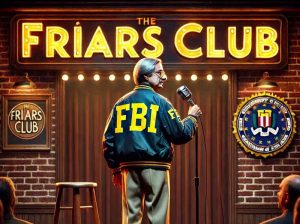F. Scott Fitzgerald's "The Great Gatsby," published a century ago, is celebrated today as a defining piece of American literature, despite its lackluster reviews upon release. Over the decades, it has continuously captivated audiences and scholars alike, becoming a staple in educational settings and a popular touchstone in culture. The novel's exploration of a tragic millionaire's life showcases profound themes that resonate well beyond its time, and yet it's also a strikingly enjoyable read.
One of the book's appealing aspects is its brevity, allowing readers to navigate its pages in one sitting. Despite some initial philosophical musings by narrator Nick Carraway, the introduction of the elusive Jay Gatsby ignites reader interest with an air of mystery that remains compelling until the final chapters. Fitzgerald crafts Gatsby as a romantic figure, driven by pure love for Daisy, who embodies both noble aspirations and the haunting decadence of post-war America. This juxtaposition of idealism against a backdrop of moral decay fuels the narrative's intensity.
Fitzgerald's sharp wit makes the social satire all the more engaging. Notably, characters like Tom Buchanan, who embodies the era's arrogance, draw laughter while still portraying a deeper societal critique. Lines filled with irony and humor reflect the absurdities of their world but also challenge readers to acknowledge the flaws inherent in the human condition.
Stylistically, Fitzgerald's fluid prose shifts seamlessly between comical exchanges and lyrical descriptions, creating a rich tapestry of experience within just a few pages. His ability to juxtapose lighthearted moments with profound reflections, particularly evident in the iconic last line, leaves an indelible mark on readers, solidifying "The Great Gatsby" as not only important but also entertaining—a literary gem that continues to shine brightly after a century.






















